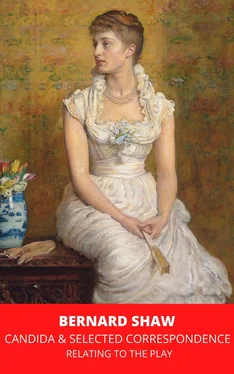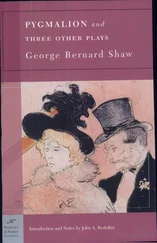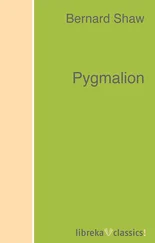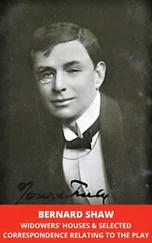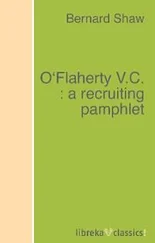Bernard Shaw
Candida & Selected Correspondence Relating to the Play
Edited by Vitaly Baziyan
Copyright © 2021 Vitaly Baziyan
All rights reserved
A mystery Candida, created by Bernard Shaw during 1894 and 1895, was first published on the 19th April 1898 by a small British publishing house that was founded by the writer Grant Richards simultaneously with American edition published by Herbert S. Stone and Company, Chicago and New York: Plays Pleasant, Volume II ( Arms and the Man, Candida, the Man of Destiny, You Never Can Tell ). This publication from a revised edition Plays: Pleasant and Unpleasant. By Bernard Shaw. The Second Volume, containing the four Pleasant Plays published by Constable and Company Ltd., London: 1920 is a handmade reproduction from the original edition, and remains as true to the original work as possible. The original edition was processed manually by means of a classic editing which ensures the quality of publications and the unrestricted enjoyment of reading.
The selected correspondence of Bernard Shaw relating to the play Candida contains 249 letters and entries written between 1889 and 1950. Sources of this collection are prior publications Collected Letters of Bernard Shaw published by Max Reinhardt; Bernard Shaw’s Letters to Siegfried Trebitsch published by Stanford University Press; Ellen Terry and Bernard Shaw: a correspondence and Our Theatres in the Nineties published by Constable and Company Ltd., London; Shaw on Theatre published by Hill and Wang, New York; Bernard Shaw’s Letters to Granville Barker published by Theatre Arts Books, New York; Shaw on Language published by Philosophical Library, New York; Advice to a Young Critic published by Peter Owen Limited, London; The Diary of Beatrice Webb, Vol. III, 1905 – 1924 “The Power to Alter Things” and Vol. IV: 1924 – 1943 “The Wheel of Life” published by the Belknap Press of Harvard University Press; Beatrice Webb’s diaries, 1924 – 1932 published by Longmans, Green and Co Ltd, London; The Letters of Sidney and Beatrice Webb: Volume II published by Cambridge University Press;The Playwright & the Pirate. Bernard Shaw and Frank Harris: A Correspondence, Bernard Shaw: The Drama Observed, and Bernard Shaw: The Diaries, 1885 – 1897 published by Pennsylvania State University Press; To A Young Actress: the Letters of Bernard Shaw to Molly Tompkins published by Clarkson N. Potter, Inc. Publisher, New York; edition of letters published by University of Toronto Press; Bernard Shaw: A Bibliography, in Two Volumes, Band 1 published by Oxford University Press.
George Bernard Shaw won The Nobel Prize in Literature for 1925 “for his work which is marked by both idealism and humanity, its stimulating satire often being infused with a singular poetic beauty.”
George Bernard Shaw won the Oscar in 1939 for Best Screenplay and Dialogue for his role in adapting his play Pygmalion for the screen.
The book represents a significant addition to modern-day understanding of Shaw’s play Candida and reveals his thoughts on a wide variety of issues, love affairs und relationships with contemporaries. Bernard Shaw’s punctuation and spelling were mostly kept by the editor. Italics were used for plays titles, books, newspapers and unfamiliar foreign words or phrases. Christian names, surnames, positions and ranks were added in square brackets when they were omitted but are necessary for a better understanding. Cuts of a few words are indicated by three dots and longer omissions by four dots.
The ebook cover was created by the editor using the picture of Sir John Everett Millais.
The play Candida was given a copyright performance at the Theatre Royal in South Shields on the 30th March 1895. The copyright performance was staged in the United Kingdom for the purpose of securing the author’s copyright over the text. There was a fear that according to the Dramatic Literary Property Act 1833, if a play’s text was published, or a rival production staged, before its official premiere, then the author’s rights would be lost.
Characters in order of appearance:
The Reverend James Mavor Morell, a clergyman and Candida’s husband – George Young
Miss Proserpine Garnett, Morell’s secretary – Ethel Verne
The Reverend Alexander (Lexy) Mill – J. Daniels
Mr Burgess, Candida’s father – Fred Cremlin
Candida – Lilian M. Revell
Eugene Marchbanks – Albert Edwin Drinkwater
Producer – Albert Edwin Drinkwater
The play Candida was first presented in public by the Independent Theatre Company at Her Majesty’s Theatre in Aberdeen on the 30th July 30 1897.
Characters in order of appearance:
The Reverend James Mavor Morell, a clergyman and Candida’s husband – Charles Charrington
Miss Proserpine Garnett, Morell’s secretary – Edith Craig
The Reverend Alexander (Lexy) Mill – Robert Farquharson
Mr Burgess, Candida’s father – Lionel Belmore
Candida – Janet Achurch
Eugene Marchbanks – Courtney Thorpe
Producer – Charles Charrington
Selected Correspondence Relating to the Play Candida
1/ Bernard Shaw’s diary entry for 14th August 1889
. . . Last day to send in article on the opera season (2500 words) to the Scottish Art Review, 294 St. Vincent St., Glasgow (James Mavor [Morell’s godfather], editor). See Monday. Last day to send in Bayreuth article to the English Illustrated Magazine. . . .
[G. Bernard Shaw]
2/ To an English dramatist Henry Arthur Jones
2nd December 1894
My dear H. A. J.
Here I am at the seaside between the finishing of one play [ Candida ] and the beginning of another [ The Man of Destiny ], just the time to send back the ball to you.
All that you say is quite true statically. Dynamically, it is of no virtue whatever. Like you, I write plays because I like it, and because I cannot remember any period in my life when I could help inventing people and scenes. I am not a storyteller: things occur to me as scenes, with action and dialogue—as moments, developing themselves out of their own vitality. I believe you will see as I go on that the conception of me as a doctrinaire, or as a sort of theatrical [Jeremiah] Joyce (of Scientific Dialogues fame), is a wrong one. On the contrary, my quarrel with the conventional drama is that it is doctrinaire to the uttermost extreme of dogmatism—that the dramatist is so strait-jacketted in theories of conduct that he cannot even state his conventional solution clearly, but leaves it to be vaguely understood, and so for the life of him cannot write a decent last act. I find that when I present a drama of pure feeling, wittily expressed, the effect when read by me to a picked audience of people in a room is excellent. But in a theatre, the mass of the people, too stupid to relish the wit, and too convention-ridden to sympathise with real as distinct from theatrical feeling, simply cannot see any drama or fun there at all; whilst the clever people feel the discrepancy between the real and theatrical feeling only as a Gilbertian satire on the latter, and, appreciating the wit well enough, are eager to shew their cleverness by proclaiming me as a monstrously clever sparkler in the cynical line. These clever people predominate in a first night audience; and, accordingly, in “ Arms and The Man ,” I had the curious experience of witnessing an apparently insane success, with the actors and actresses almost losing their heads with the intoxication of laugh after laugh, and of going before the curtain to tremendous applause, the only person in the theatre who knew that the whole affair was a ghastly failure. The same thing is occurring now in Boston, Philadelphia, &c—there is about as much of me in the affair as there is of Shakespere in [David] Garrick’s “ Katherine and Petruchio .” Here and there, of course, I come across a person who was moved by the play, or by such portions of it as got played any better than a pantomime opening; but for the general paying public there needs a long fight, during which my plays will have to be produced in spite of all economic considerations, sometimes because the parts are too fascinating to be resisted, sometimes because [Arthur Wing] Pinero is not ready with his commissioned play, sometimes because I am willing to forgo an advance, sometimes because Nature not submit wholly to the box office.
Читать дальше
